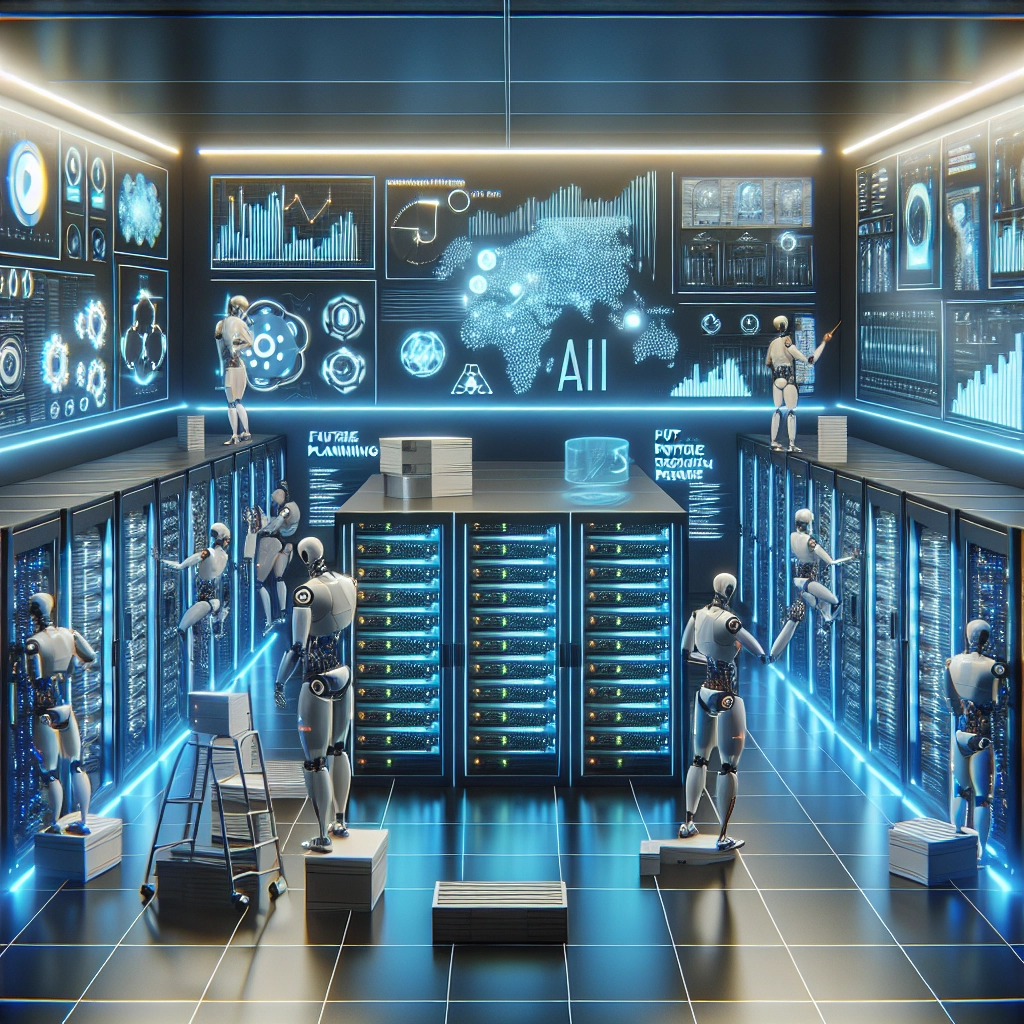As data centers prepare for the future, especially with the rise of AI technologies, the landscape of construction and operation is rapidly changing. The introduction of AI workloads, particularly in training and inference tasks, is driving significant shifts in how data centers are built and how they manage energy and infrastructure.
In the wake of AI’s explosive growth, sparked by developments like ChatGPT, the demand for advanced data center capabilities has surged. AI training relies heavily on graphics processing units (GPUs) due to their efficiency in handling parallel computations, which traditional central processing units (CPUs) struggle with. This shift necessitates substantial infrastructure changes to accommodate the power-hungry requirements of AI training systems, often consuming 90 to 130 kW per rack, alongside robust cooling systems essential for maintaining optimal conditions. In contrast, inference tasks—which utilize trained models for specific actions—have lower energy demands, typically between 15 and 40 kW per rack.
The scale of modern data centers is also changing dramatically. Facilities are now designed with individual buildings that can draw 100 MW of power, with some campuses reaching an aggregate of 1 GW of consumption. This is a stark departure from the past, where power was distributed across multiple smaller buildings. The increasing power density of GPUs is pushing data centers to transition from traditional air-based cooling systems to more efficient liquid cooling methods.
Future data center designs must take into account the primary functions—whether for training or inference—to ensure proper power and cooling infrastructures. High initial power requirements above 100 MW per building must be met, alongside the ability to scale for potential massive power needs across campuses. The evolving landscape of cooling demands further complicates design considerations, as facilities must now blend traditional air systems with innovative liquid cooling methods to cater to high-density GPU hardware.
As these facilities evolve, they require more vertical space to accommodate additional components such as busways and cooling systems, which in turn necessitates faster design and construction cycles. Leveraging prefabrication techniques for both electrical and mechanical layers can help streamline this process while enhancing safety.
Existing data centers face challenges in adapting to the current AI landscape, especially with modifications needed for inference workloads. Often, this involves retrofitting for liquid cooling and updating electrical systems, echoing transitions seen in early 2000s data centers. However, training facilities typically necessitate entirely new setups due to the massive power and networking requirements associated with enhanced AI processing.
A significant upward trend in power consumption parallels the advancements in GPU technology, a phenomenon described by Jevons Paradox, indicating that as technological efficiency improves, total energy use can rise. Hence, continuous innovations in power management and cooling technology remain imperative.
In response to AI’s growth, the clean energy market is shifting dramatically. Trends include establishing AI centers near abundant energy resources, utilizing decommissioned power plants, and increasing collaborations between tech firms and utilities to invest in sustainable energy generation, including nuclear power.
Despite the inherent challenges—such as construction constraints, skilled labor shortages, and soaring material costs—the outlook for the data center industry remains positive. Embracing the opportunities brought on by AI offers pathways for innovation and adaptation, ensuring infrastructure keeps pace with this rapidly evolving sector. The evolution of data center facilities is vital, demanding collaboration between technology experts, utility providers, and construction professionals to meet the escalating needs of the industry.
Welcome to DediRock, your trusted partner in high-performance hosting solutions. At DediRock, we specialize in providing dedicated servers, VPS hosting, and cloud services tailored to meet the unique needs of businesses and individuals alike. Our mission is to deliver reliable, scalable, and secure hosting solutions that empower our clients to achieve their digital goals. With a commitment to exceptional customer support, cutting-edge technology, and robust infrastructure, DediRock stands out as a leader in the hosting industry. Join us and experience the difference that dedicated service and unwavering reliability can make for your online presence. Launch our website.

